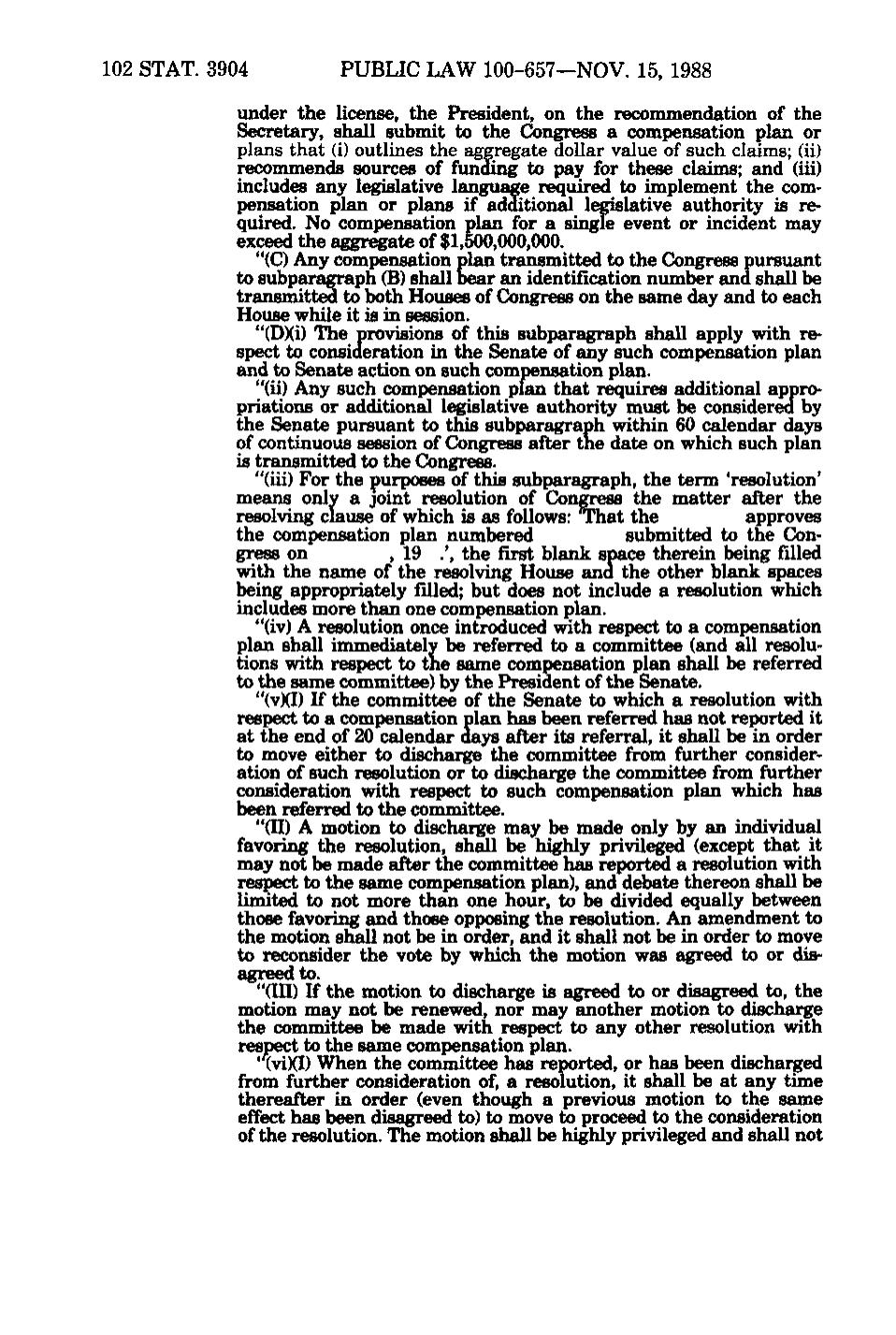102 STAT. 3904
PUBLIC LAW 100-657—NOV. 15, 1988
under the license, the President, on the recommendation of the Secretary, shall submit to the Congress a compensation plan or plans that (i) outlines the aggregate dollar value of such claims; (ii) recommends sources of funding to pay for these claims; and (iii) includes any legislative language required to implement the compensation plan or plans if additional legislative authority is required. No compensation plan for a single event or incident may exceed the aggregate of $1,500,000,000. "(C) Any compensation plan transmitted to the Congress pursuant to subparagraph (B) shall bear an identification number and shall be transmitted to both Houses of Congress on the same day and to each House while it is in session. "(D)(i) The provisions of this subparagraph shall apply with respect to consideration in the Senate of any such compensation plan and to Senate action on such compensation plan. "(ii) Any such compensation plan that requires additional appropriations or additional legislative authority must be considered by the Senate pursuant to this subparagraph within 60 calendar days of continuous session of Congress after the date on which such plan is transmitted to the Congress. "(iii) For the purposes of this subparagraph, the term 'resolution' means only a joint resolution of Congress the matter after the resolving clause of which is as follows: That the approves the compensation plan numbered submitted to the Congress on , 19.', the first blank space therein being filled with the name of the resolving House and the other blank spaces being appropriately filled; but does not include a resolution which includes more than one compensation plan. "(iv) A resolution once introduced with respect to a compensation plan shall immediately be referred to a committee (and all resolutions with respect to the same compensation plan shall be referred to the same committee) by the President of the Senate. "(v)(1) If the committee of the Senate to which a resolution with respect to a compensation plan has been referred has not reported it at the end of 20 calendar days after its referral, it shall be in order to move either to discharge the committee from further consideration of such resolution or to discharge the committee from further consideration with respect to such compensation plan which has been referred to the committee. "(II) A motion to discharge may be made only by an individual favoring the resolution, shall be highly privileged (except that it may not be made after the committee has reported a resolution with respect to the same compensation plan), and debate thereon shall be limited to not more than one hour, to be divided equally between those favoring and those opposing the resolution. An amendment to the motion shall not be in order, and it shall not be in order to move to reconsider the vote by which the motion was agreed to or disagreed to. "(Ill) If the motion to discharge is agreed to or disagreed to, the motion may not be renewed, nor may another motion to discharge the committee be made with respect to any other resolution with respect to the same compensation plan. (viXD When the committee has reported, or has been discharged from further consideration of, a resolution, it shall be at any time thereafter in order (even though a previous motion to the same effect has been disagreed to) to move to proceed to the consideration of the resolution. The motion shall be highly privileged and shall not
�
